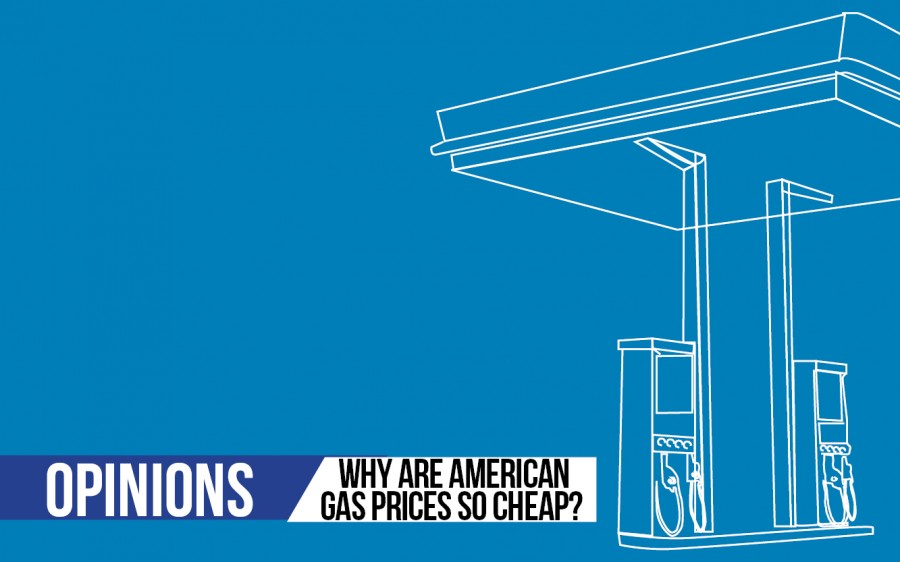Why are American gas prices so cheap?
January 22, 2015
Over the last few months, oil prices have declined precipitously. The Organization of the Petroleum Exporting Countries, or OPEC–principally led by Saudi Arabia–has flooded the market, which was already over-saturated by burgeoning oil production and exportation in the United States.
While this is certainly good news for consumers in the United States, it may end up having a more insidious effect on the economy in the long run. Shale oil in the United States is notoriously expensive to extract and it costs these producers significantly more than their Saudi counterparts. If prices stay this low for an extended period, many producers could go bankrupt. This may ultimately be the reasoning behind the Saudi’s move to not lower production as prices started to drop.
Most “oil” states in the United States–notably Texas, Alaska, Oklahoma, California, and North Dakota–rely heavily on oil production for state revenue and job growth. Similarly, Russia and Venezuela have the same sort of oil dependence, except price fluctuations have larger national implications. The next year might bring these economies back into recession as the rest of the world moves along.
In the broader scheme of events, these low oil prices have also extinguished any sort of existing conversation on energy prices and the search for renewable energy for businesses, transportation, and homes.
As a whole, U.S. gasoline and natural gas prices are much lower than in Europe or Asia. Taxes on these products in countries such as Britain or France almost double the price of gasoline, whereas taxes on gasoline in the United States have stayed at $0.18 a gallon since 1993.
This policy has enabled a lifestyle where Americans do not actually pay for the true cost of driving. In European countries, these taxes are collected to fix and improve roads, pay police officers and other emergency response teams, offset the environmental impact, and help invest in renewable energy sources. Instead of levying the tax burden on the actual users of cars and trucks, it is transferred to the general public through state and local taxes. Or, in the case of environmental impact and investment, our monetary base is nonexistent.
Americans are driving more than their European counterparts and paying less for it. Actually, according to Stefan Tscharaktschiew at the Dresden University of Technology, even taxes in Germany are too low as it is and should be raised to $4.36 a gallon (in U.S. dollars) just to offset the true cost of driving–a figure which is nearly double what people pay in the United States, even before the market cost of gasoline is factored in! Not only are we falling behind globally; as it turns out, no one is paying the true cost of driving.
Our current age is one of consistently avoiding environmental realities. Oil and gas are finite resources whose carbon emissions are catastrophically destroying the planet. Until that reality is reflected in the cost of gasoline, consumers will be none the wiser nor will they take an interest in the issue.
It’s a funny thing what kind of problems a simple drop in prices can have on a global scale.






















